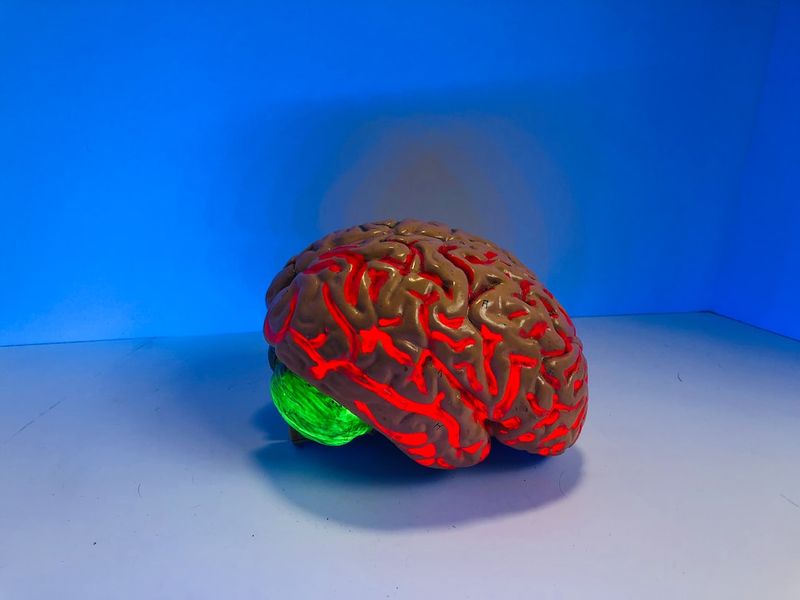Bruce Willis: A Tragic Battle with Dementia
Introduction
In a heartbreaking revelation, it has been reported that renowned actor Bruce Willis is currently battling with frontotemporal dementia, a degenerative disease that affects communication and cognitive functions. Willis, widely known for his roles in movies like ‘Die Hard’ and his breakout TV series ‘Moonlighting,’ has seen a decline in his ability to communicate, according to his close friend and director Glenn Gordon Caron.
A Devastating Diagnosis
Frontotemporal dementia, as described by the National Institute on Aging, is caused by damage to the neurons in the frontal and temporal lobes of the brain. This damage leads to personality, behavior, and judgment changes, while memory may remain relatively intact. Willis’ family revealed the diagnosis earlier this year, less than a year after he had already stopped performing due to an aphasia diagnosis. Aphasia is a condition that affects language and speech abilities.
A Loss of Communication Skills
Glenn Gordon Caron, who worked closely with Willis on the TV series ‘Moonlighting’ and has been visiting him regularly since his diagnosis, shares the heartbreaking account of seeing the actor‘s declining communication skills. Caron mentions that while Willis still recognizes him during their visits, his ability to communicate has sharply declined. According to Caron, Willis, who used to be a voracious reader, is no longer able to read, losing his language skills in the process.
Recognizing Bruce, but Missing the Joie de Vivre
Caron describes his time with Willis, stating that in the first few minutes of their interactions, Willis still knows who he is. However, the famous actor‘s joie de vivre, his zest for life, has sadly disappeared. Caron emphasizes that there was no one who appreciated life more than Willis, relishing each day and striving to live it to the fullest. Witnessing the disease take away this vibrant spirit is truly mind-blowing, according to Caron.
Philosophical Reflection: The Fragility of Identity and Communication
The Betrayal of Dementia
Bruce Willis’ battle with dementia highlights the fragile nature of our identities and the devastating impact that diseases like these can have on our ability to communicate with the world. Identity is not solely about physical appearances or achievements; it is about our thoughts, memories, and the way we communicate with others. Dementia undermines these fundamental aspects of personhood, causing distress not only to the individual but also to their loved ones and the wider community.
The Language of Connection
Language is one of the most foundational tools for human connection and understanding. It shapes our relationships, allows us to express our desires and dreams, and serves as the medium through which we share emotions and experiences. When dementia robs individuals like Bruce Willis of their language skills, it severs their connections with the world, leaving them isolated and profoundly changed.
Respecting the Person Within
Though Willis may struggle to communicate as he once did, Caron emphasizes that “he’s still Bruce.” This sentiment speaks to the importance of recognizing the inherent worth and value of individuals, even when their abilities may be impaired. While the disease may strip away familiar aspects of a person, it does not erase their essence. We must strive to approach those living with dementia with compassion, respect, and an understanding that they are still who they were, albeit with new and challenging circumstances.
Editorial: Raising Awareness and Empathy
A Call for Understanding
Bruce Willis’ battle with dementia serves as a potent reminder of the need to educate ourselves and society about neurodegenerative diseases. By raising awareness, we can foster a more empathetic and supportive environment for those grappling with these conditions. It is incumbent upon communities, healthcare providers, and policymakers to allocate resources and develop strategies that improve the quality of life for individuals affected by dementia and their caregivers.
Championing Research and Funding
Furthermore, this revelation underscores the importance of investing in dementia research and finding effective treatments or even a cure. Promoting collaborations between scientists, healthcare professionals, and philanthropic organizations will facilitate advancements in understanding the causes, prevention, and management of dementia. Robust funding is essential to drive research forward and give hope to the millions of individuals around the world facing the challenges posed by neurodegenerative diseases.
Advice: Nurturing Connections and Memories
Supporting Individuals and Caregivers
For those personally affected by dementia or caring for someone with the disease, it is crucial to seek support and build a network of understanding individuals. Organizations such as Alzheimer’s Association and Dementia Society provide resources, support groups, and guidance to navigate the challenges associated with dementia.
Preserving Memories and Communication
Finding alternative forms of communication can help bridge the gap caused by language decline. Embracing nonverbal communication, such as through music, art, or photographs, can help individuals with dementia connect with their past and loved ones. Engaging in memory-boosting activities, like reminiscing or creating memory boxes, can foster a sense of identity and provide avenues for connection even as language skills diminish.
Advocating for Improved Dementia Care
Advocacy plays a crucial role in ensuring that individuals with dementia receive the care and support they deserve. By raising our voices and advocating for improved dementia care services, increased funding, and promoting research, we can strive for a society that does not let individuals like Bruce Willis silently suffer but instead provides a compassionate and empathetic environment that upholds their dignity.
In conclusion, Bruce Willis’ battle with dementia serves as a poignant reminder of the fragility of our identities and the importance of communication in our lives. It is a call to action for society to better understand, support, and advocate for individuals affected by neurodegenerative diseases, as well as to invest in research that offers hope for the future. Let us strive to create a world that values individuals living with dementia and cherishes their contributions to our collective humanity.

<< photo by Natasha Connell >>
The image is for illustrative purposes only and does not depict the actual situation.
You might want to read !
- Intriguing Insight: Bruce Willis’ Wife Reflects on His Awareness of His…
- Unmasking the Uncertainty: Bruce Willis’ Awareness of His Dementia Condition Remains Ambiguous
- Bruce Willis’s Awareness of Dementia Condition Remains Uncertain, Says Wife
- Comedian Mark Steel’s Brave Battle: Confronting Cancer with Humor
- Mark Steel’s Brave Battle: Comedian’s Triumph Over Throat Cancer
- National Boyfriend Day 2023: The Whimsical Memetic Onslaught on ‘X’
- “Scotland’s Euro 2024 Qualifier: A Victorious Battle or a Spanish Showdown?”
- In Defense of Captain Tom’s Daughter: A Justification for Keeping Book Profits
- “Blooming News: Peter Andre and Wife Emily Anticipate Arrival of Their Third Child!”
- Scotland’s VAR Outrage Sparks Controversy in Euro 2024 Qualifying Clash with England
- “Daniel Sturridge Faces Legal Troubles in Quest to Find Missing Dog”
- “Cricket World Cup 2023: India Faces Afghanistan – Live Score Updates and Analysis”
- In-depth Analysis: Clash of Titans – India vs Afghanistan in the ICC Cricket World Cup 2023
- “A Political Turnabout: SNP MP Lisa Cameron Switches Allegiances to the Conservatives”
- “Unyielding Emergency: Prolonging the National Crisis Notice”
- Sam Bankman-Fried’s Trial: Star Witness Pins Crimes on Him
- Madonna’s Spectacular Celebration Tour: A Musical Extravaganza with Over 40 Captivating Songs
- Yvette Fielding Opens Up About her Experience with Bullying on Blue Peter
- A12 Closure Sparks Debate on Mental Health Awareness in Public spaces
- “Addressing the Silent Crisis: Kent and Medway’s Promising Funding Surge on World Mental Health Day”
- From Bavarian Backyards to Barbie’s Bestseller: The Birkenstock Phenomenon Explored
- Behind Closed Doors: Unveiling the Enigmatic Marriage of Nigel Harman
- 2023 Signal Awards Honor Trailblazers: Oprah, Michelle Obama, Jon …
- An Inside Look at Carol Vorderman’s Lavish Home: Mannequin Furniture Included




